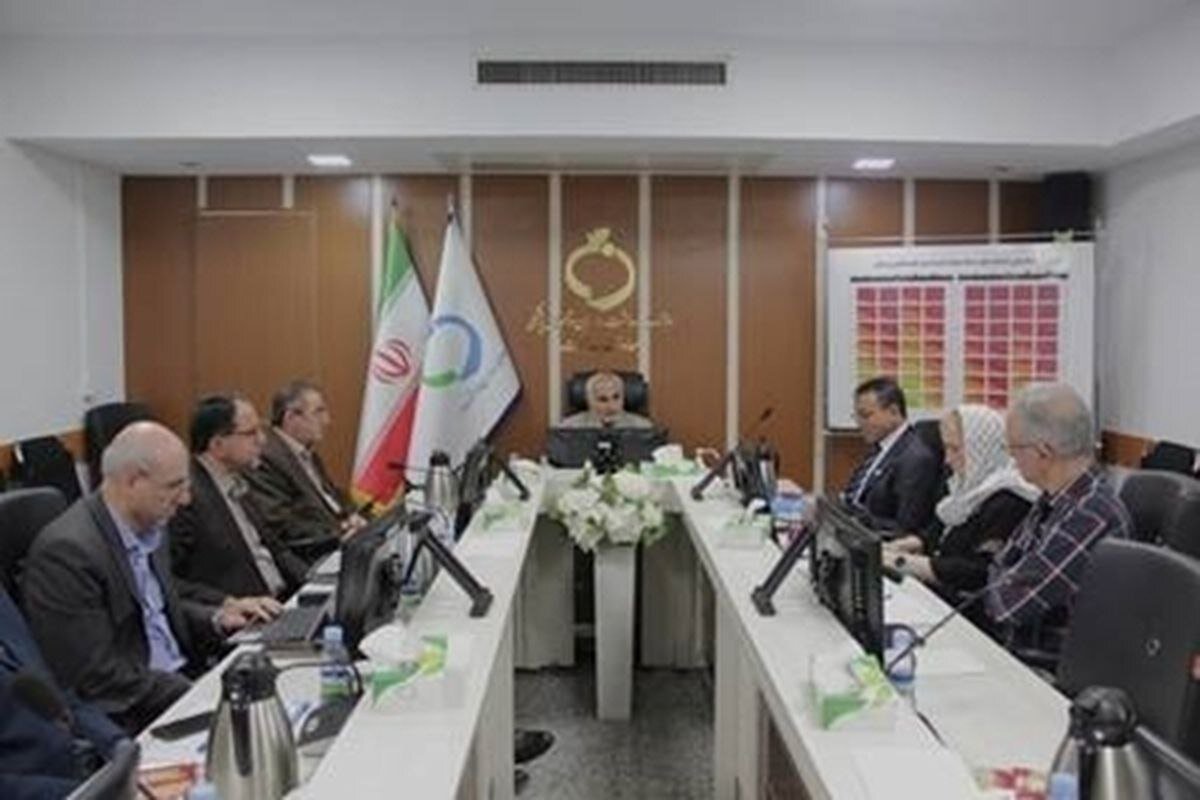Health ministry, UNICEF highlight significance of enhanced cooperation

TEHRAN – In a farewell ceremony held on Wednesday in Tehran for Robin Nandy, the outgoing representative of the United Nations Children’s Fund (UNICEF) in Iran, he underscored the importance of enhancing collaborations.
During the meeting, Nandy lauded the health ministry’s support during his mission in Iran and called for the preservation and enhancement of collaborative efforts between UNICEF and the health ministry.
Hassan Farshidi, an official with the health ministry, for his part, commended some important achievements in the health sector, including facilitating the import and procurement of rotavirus, pneumococcal conjugate vaccine (PCV), and the enhancement of cold chain system for the transportation and storage of vaccines.
The official expressed optimism that under the new management of UNICEF, in addition to maintaining present cooperation, more joint programs for improving the health of the society be implemented.
Collaborative efforts in health sector
In May, the ministry of health in cooperation with UNICEF organized two training of trainers (ToT) workshops to help health experts boost their knowledge of media health literacy.
The workshops were held in Tehran in the first week of May.
Some 80 health education and health promotion experts from the ministry of health participated in the workshops.
The participants enhanced their knowledge and exchanged views on media health literacy to tackle misinformation and disinformation in different health-related areas.
Participants in this three-day ToT engaged in fruitful discussions on media health literacy and reviewed lessons learned in the past years, especially during the COVID-19 pandemic as well as charted the way forward.
In March, UNICEF supported the delivery of 564,000 doses of Pneumococcal Conjugate Vaccine (PCV) for the prevention of pneumococcal-related infections and deaths among children in Iran.
The measure was adopted in support of the introduction of PCV in the national childhood immunization program in the country, the UNICEF website reported on March 17.
The consignment was the first shipment of PCV to the country, using Iran’s financial resources left over from the procurement of COVID-19 vaccines, and delivered in collaboration with the Ministry of Health and Medical Education of the Islamic Republic of Iran, through UNICEF procurement services.
The shipment arrived from India and landed at Tehran’s Imam Khomeini International Airport on March 17.
In January, UNICEF in collaboration with the Ministry of Health and Medical Education enhanced the country’s vaccine cold chain system by providing walk-in cold rooms and refrigerated vehicles.
According to a press release by the UNICEF website on January 10, procuring, transporting, storing, and delivering vaccines to children in all corners of the world is a complex process that needs a well-functioning cold chain system.
Concerning the fact that the provision of standard immunization services to the community, especially children under five, is a key component of primary health care, in 2020, the Ministry of Health and Medical Education conducted an assessment in cities with more than 200,000 population to check the number of walk-in cold rooms for storing vaccines.
In 2023, considering the existing need for a strong cold chain system to preserve and maintain the quality and potency of vaccines nationwide, 19 medical universities were prioritized for the installation of walk-in cold rooms.
Inadequate walk-in cold rooms, population in each region, and climate conditions, which affect vaccine delivery and storage, are among the important factors in prioritizing an area
Funded by the European Civil Protection and Humanitarian Aid Office (ECHO), in the first phase, UNICEF in cooperation with the Ministry of Health and Medical Education installed nine walk-in cold rooms in the provinces of Isfahan, Hormozgan, East Azarbaijan, West Azarbaijan, Khorasan Razavi, Ardebil, Tehran, Sistan-Baluchestan and Chaharmahal-Bakhtiari.
In the second phase, to enhance the country’s vaccine cold chain system, UNICEF provided 17 high-quality refrigerated vehicles, which were distributed to medical universities in Jahrom, Sirjan, Dezful, Tehran, Rafsanjaan, Behbahan, Saveh, Kashan, Khoy, Qazvin, Semnan, Qom, Larestan, Shahrood, Babol, Chabahar, and Shahrekord provinces.
This initiative, funded by UNICEF’s Access to Covid-19 Tools Accelerator and Humanitarian Action for Children (ACT-A-HAC) UNICEF and Gavi, the vaccine alliance, will continue in 2024 with provision and installation of another 10 walk-in cold rooms across the country, the report added.
MT/MG
Leave a Comment